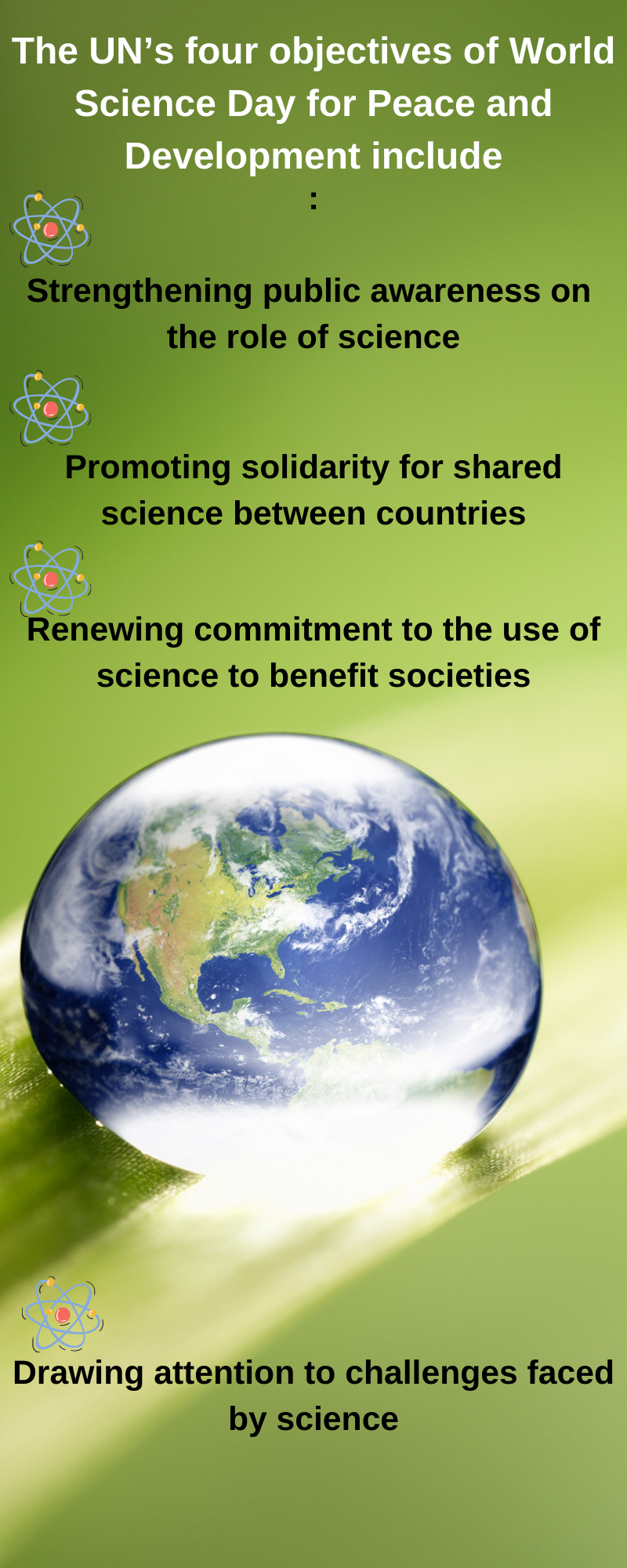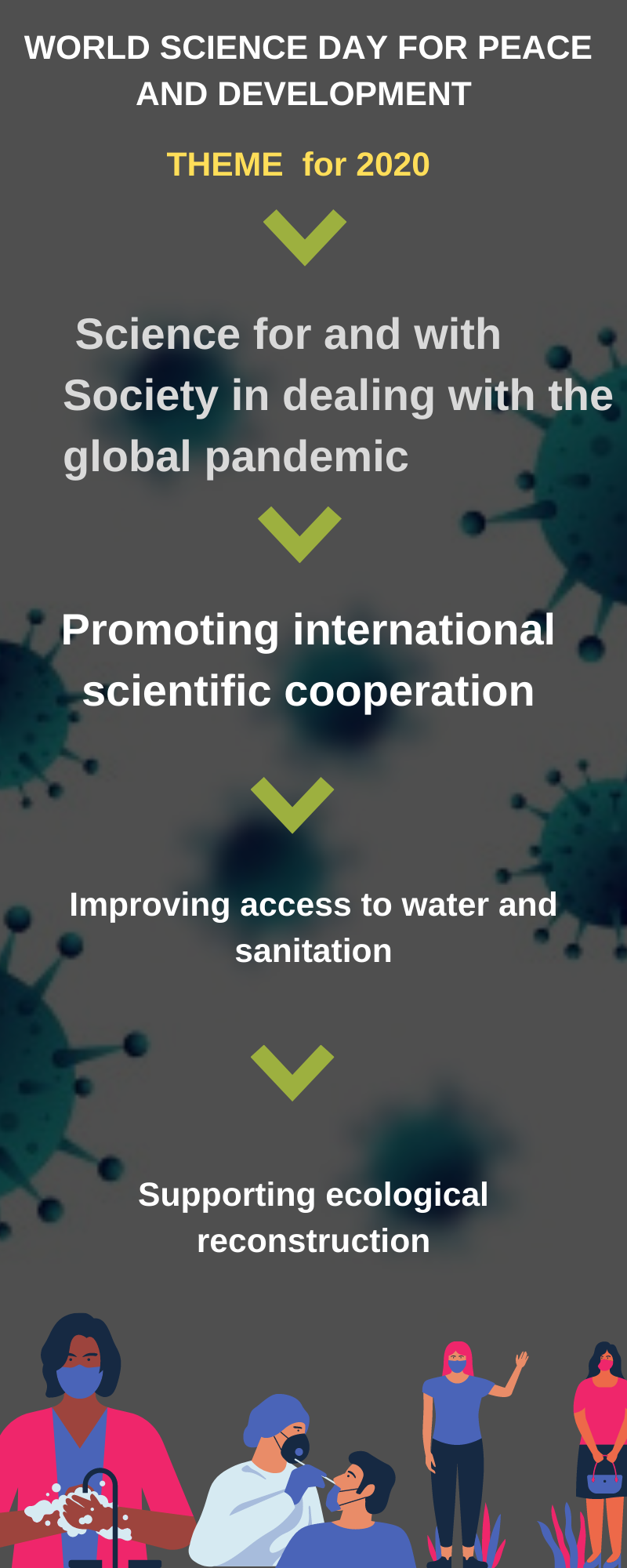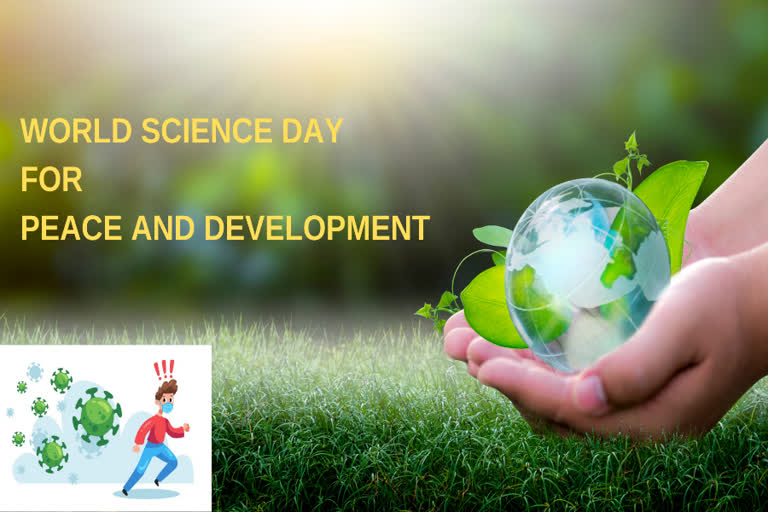Hyderabad: By linking science more closely with society, World Science Day for Peace and Development aims to ensure that citizens are kept informed of developments in science. It also underscores the role scientists play in broadening our understanding of the remarkable, fragile planet we call home and in making our societies more sustainable.
The Day offers the opportunity to mobilize all actors around the topic of science for peace and development – from government officials to the media to school pupils. UNESCO strongly encourages all to join in celebrating World Science Day for Peace and Development by organizing your own event or activity on the day.

Despite the significant progress made in the field of science, much disparity still exists throughout the world. This disparity is especially evident in developing countries where there is limited access to science, technology, and innovation (STI). This lack of access makes it challenging for people in these countries to enjoy the benefits of STI.

Each year has a different theme. This year, at a time when the world is struggling with the global COVID-19 pandemic, the focus of World Science Day is on “Science for and with Society in dealing with the global pandemic.”Throughout this unprecedented health crisis, UNESCO, as the UN Agency with the field of science in its mandate, has endeavoured to bring science closer to society and to bolster the critically needed international scientific collaborations.
- Promoting international scientific cooperation: To tackle the COVID-19 pandemic, it is imperative to strengthen international and national scientific cooperation, as well as the dialogue between scientists, policymakers, private practitioners, industries and health professionals, civil society and public at large. This calls for open access to scientific knowledge and know-how, data sharing and evidence-based policy and decision making and an urgent transition to Open Science globally.
- Improving access to water and sanitation: Access to clean and safe water and sanitation is critical and is indispensable to avoid the spread of COVID-19 and to fight the pandemic. UNESCO provides scientific and technical advice and builds capacity for evidence-based and inclusive water policies and for the sustainable management of water resources towards ensuring access to clean and safe water and sanitation for all.
- Supporting ecological reconstruction: The pressure on biodiversity and its natural habitats favour the emergence of zoonoses such as COVID-19. More than ever, there is a need to rethink the links between people and nature. UNESCO’s designated sites, such as Biosphere Reserves and Global UNESCO Geoparks, are powerful tools for bringing people closer to nature by testing and applying integrated approaches to biodiversity conservation and sustainable use and sustainable development.
Also Read: Water bears glow to survive a blast of UV
- The organization of a focused event related to the commitment to science and society was one of the positive outcomes of the 1999 World Conference on Science in Budapest. It was considered an opportunity to reaffirm each year the commitment to attaining the goals proclaimed in the Declaration on Science and the Use of Scientific Knowledge and to follow up the recommendations of the Science Agenda: Framework for Action.
- Since its proclamation by UNESCO in 2001, World Science Day for Peace and Development has generated many concrete projects, programmes and funding for science around the world. The Day has also helped foster cooperation between scientists living in regions marred by conflict - one example being the UNESCO-supported creation of the Israeli-Palestinian Science Organization (IPSO).
- The rationale of celebrating a World Science Day for Peace and Development has its roots in the importance of the role of science and scientists for sustainable societies and in the need to inform and involve citizens in science. In this sense, a World Science Day for Peace and Development offers an opportunity to show the general public the relevance of science in their lives and to engage them in discussions. Such a venture also brings a unique perspective to the global search for peace and development.
- The first World Science Day for Peace and Development was celebrated worldwide on 10 November 2002 under UNESCO auspices. The celebration involved many partners, such as governmental, intergovernmental and non-governmental organizations, UNESCO National Commissions, scientific and research institutions, professional associations, the media, science teachers and schools.
Also Read: The science and technology of sound sleep



